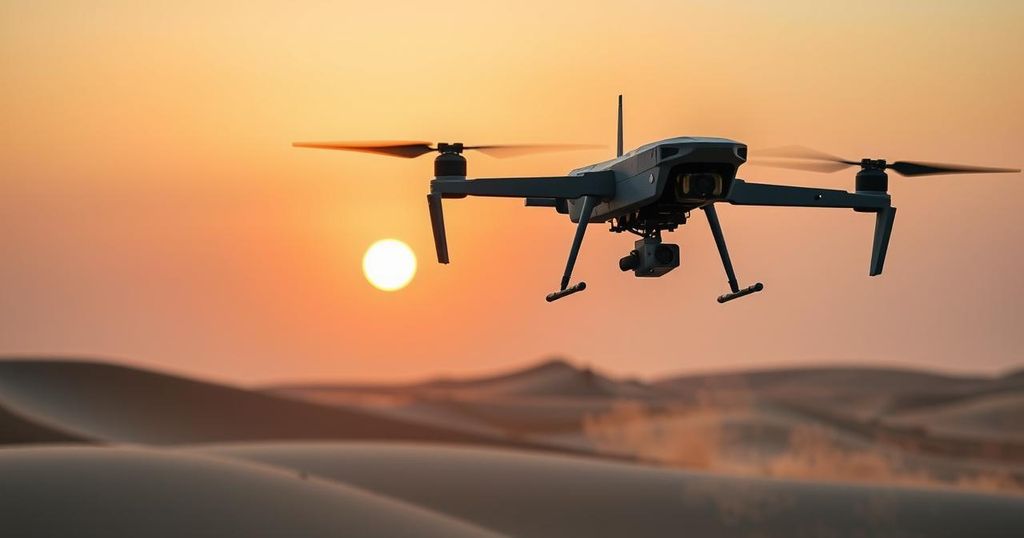Djibouti’s Drone Strike: Civilian Casualties Amid Concerns of Human Rights Violations

Djibouti’s Ministry of Defense reported a drone strike that killed eight alleged terrorists in Addorta. The attack, acknowledged to have caused civilian casualties, has drawn criticism for potential violations of human rights. Local reports indicate further fatalities in Ethiopia’s Afar region, raising humanitarian concerns about the impact of these military actions.
The Ministry of Defense in Djibouti confirmed executing a drone strike on January 30 in Addorta, a locality situated six kilometers from the Ethiopian border. The ministry’s announcement claimed the operation resulted in the deaths of eight individuals labeled as “terrorists,” while also acknowledging the occurrence of civilian casualties. Collateral damage has been recognized, prompting an investigation into the civilians’ involvement in the targeted area.
The statement indicated that the site had been under surveillance for a week and was identified as a base for a group reportedly engaged in hostile activities, including incursions across three routes deemed threats to Djibouti’s strategic infrastructure. Notably, the ministry alleged that this group was involved in kidnapping rural school teachers, raising security concerns for the Lake Assal-Tadjourah corridor.
Reports from Ethiopia’s Afar region revealed more than eight fatalities due to drone strikes on the same night, stating that the area was struck multiple times. Eyewitnesses recounted casualties, including a pregnant woman and two brothers, with several others sustaining injuries requiring hospital treatment.
Furthermore, the Djiboutian League for Human Rights accused the strikes of disproportionately affecting civilians, citing 14 fatalities, including four women. They condemned the drone activity as a violation of human rights and likened it to a war crime targeting Afar nomads. As of now, the Ethiopian government has not provided any comments on the situation.
This situation arises amidst ongoing tensions along the Ethiopia-Djibouti border, where unresolved conflicts have led to heightened military actions. The use of drone strikes by the Djiboutian government signifies a response to perceived threats from armed groups operating in the region. The impact of such operations on civilian populations raises significant humanitarian concerns, illustrating the complexities in addressing security while protecting human rights.
In conclusion, the recent drone strike conducted by Djibouti’s Ministry of Defense highlights the urgent security challenges faced by the nation. While aimed at neutralizing threats, such military actions have resulted in civilian casualties, prompting investigations and international scrutiny. The conflicting reports from local residents and human rights organizations underscore the severe implications of these military operations on local communities.
Original Source: addisstandard.com








